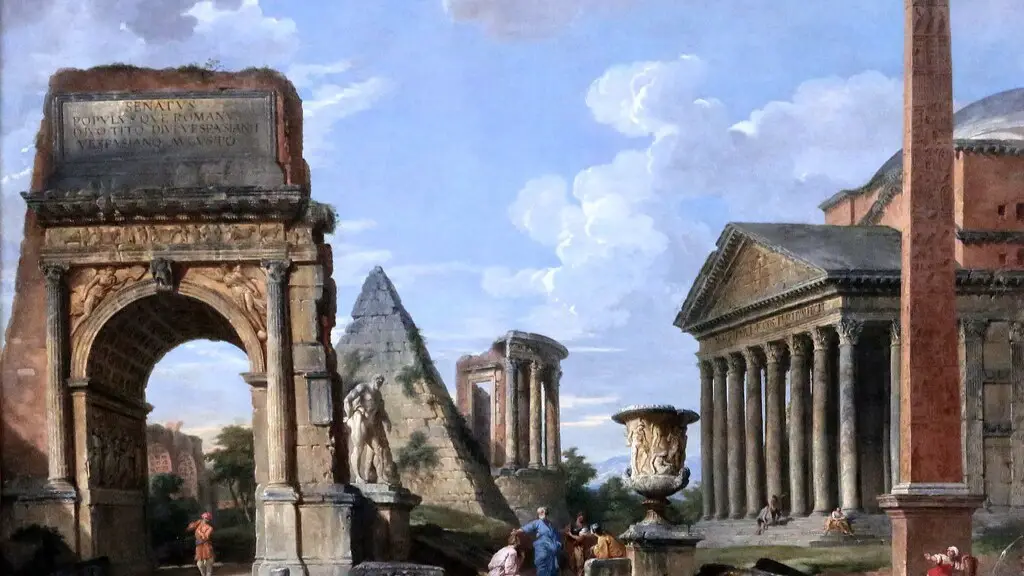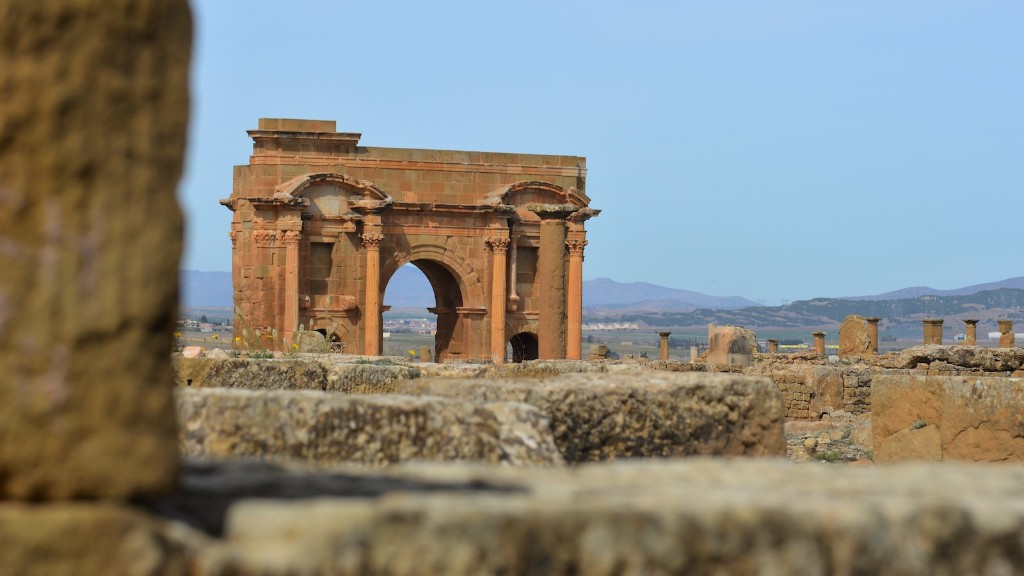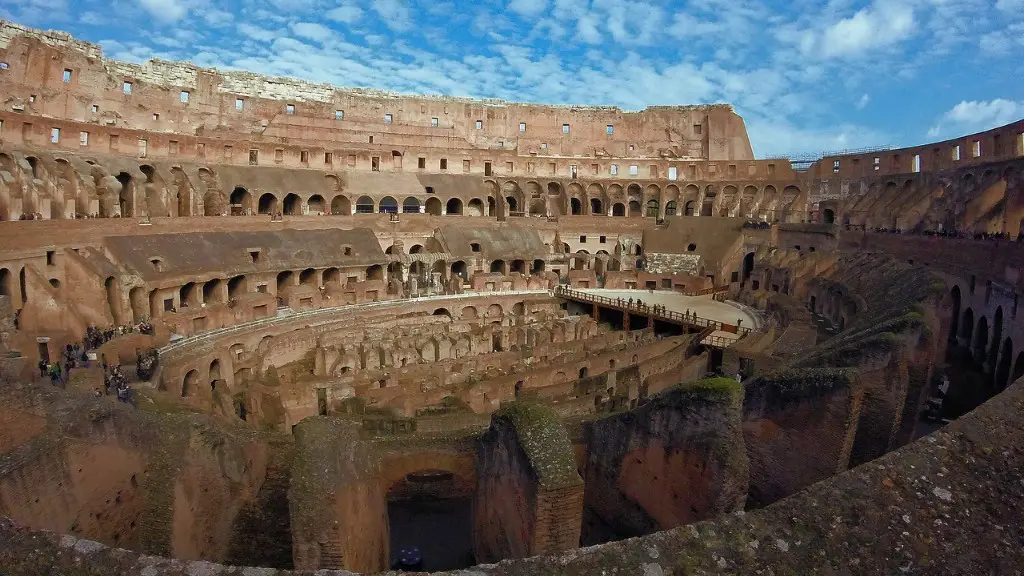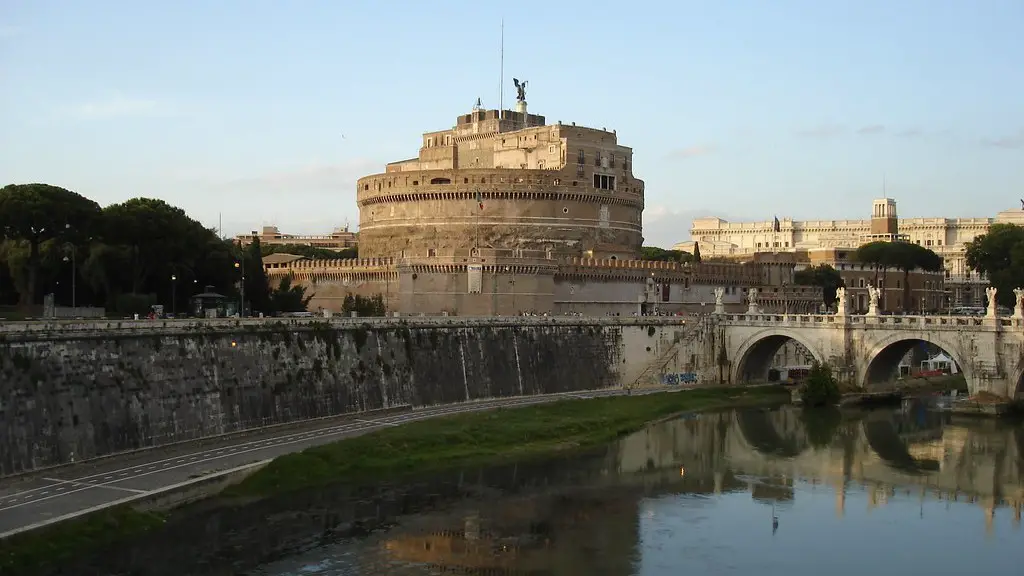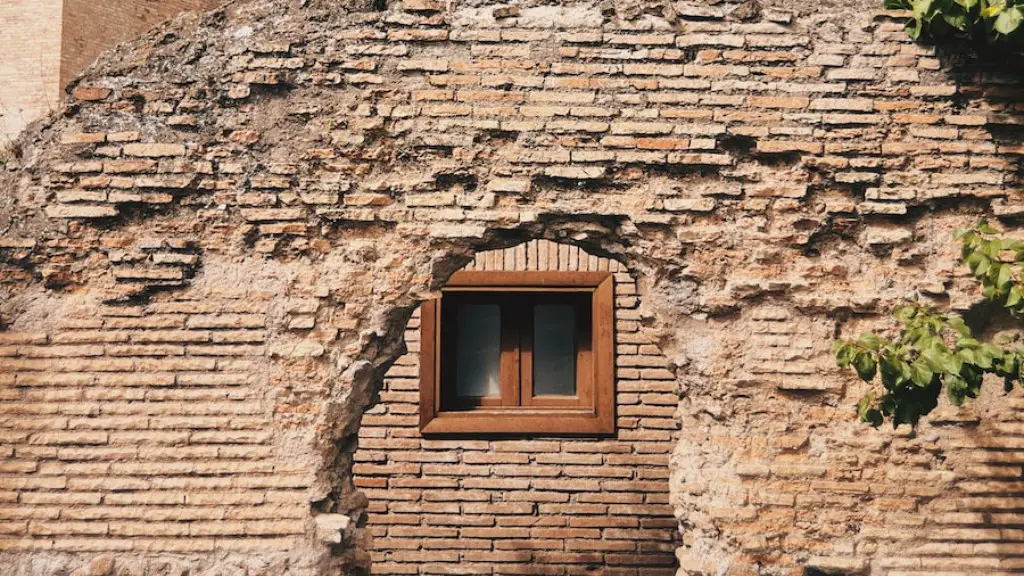The Ancient Romans are renowned across the world for their violence and their conquests, but why were they so violent? This article will delve into the motivations behind the Roman’s aggression, exploring why they acted violently and how they managed to become so successful in the ancient world. It will also provide a historical context to the era and will provide perspectives from experts on the matter.
From the start of the Roman Republic in 509 BC, the Romans believed in the importance of the war. As their civilization expanded, so too did their military. Rome quickly became a dominant force in the region. This can be largely attributed to their military power and ambition. As their power grew, so too did their desire for land and glory.
It is worth considering that many of the Roman’s rivals were similar in nature. They were also militarily aggressive and imperialistic, and this created a climate of violence and competition between the major powers. This led to a number of wars which culminated in the Punic wars between Rome and Carthage in the 3rd and 2nd centuries BC.
The Punic wars cemented the Romans as a major power in the ancient world and this created an appetite for expansion. This meant that they had to defeat their rivals in order to gain land and resources. This led to the Romans waging wars across Europe, the Middle East and Africa.
Scholars suggest that the Roman approach to war was very systematic. They employed a variety of tactics such as sieges, ambush, and psychological tactics. They also used their strength in numbers to an advantage, outmaneuvering their enemies. This helped them to be successful in war as they could outwit and outlast their rivals.
The Romans often brutalised their enemies in battle, and this created an aura of fear around them. This meant that they were often successful in subduing their rivals, as they intimidated them into submission. Furthermore, they weren’t afraid to use the death penalty to numerous people in the conquered lands, which ensured their dominance.
It is important to note that to a large extent, the Romans were simply doing what they felt was necessary in order to survive and prosper in the ancient world. This was a cut-throat era, and war was seen as a legitimate means for them to fulfil their ambitions.
Violence To Impress
The Romans were also known to use violence to impress their friends, neighbours, and enemies. It is thought that by using violence to project their power and status, the Romans were perceived as invincible. This showed their neighbours and rivals that they weren’t to be messed with and that their ambition was impossible to stop.
The Romans also thought that by acting violently they were able to protect their interests. This was seen as a means of deterring any potential rival or enemy who may have been thinking of invading or attacking Rome. This ensured that their ambitions weren’t hindered by potential enemies.
These reasons, along with their ambition and competitive spirit, help to explain why the Romans were so violent and successful in their conquests. It has been said that the difference between their enemies and the Romans was that their enemies had ambition, while the Romans had tactics.
Effective Leadership
Another factor that contributed to the success of the Romans was their leadership. Roman leaders were renowned for their tactical acumen and ability to motivate their troops to fight. This is something that the Romans excelled at and it was also a key factor in their success.
The Romans were also well-known for their ability to adapt and learn from their mistakes. This enabled them to develop innovative strategies and tactics that put them one step ahead of their enemies. For example, they developed the concept of the ‘faro’, whereby they would surround their enemies and attack them from all sides.
They also used psychological tactics such as playing loud music during battles, intimidating their enemies and engaging in ritualistic combat such as gladiatorial games. All of these tactics and strategies helped to give them an edge over their opponents.
Furthermore, the Romans were aware of the value of intelligence gathering. This enabled them to know the strengths and weaknesses of their enemies which allowed them to develop strategies to better defeat them. This meant that the Romans had a good understanding of their enemies’ movements and were able to plan for any eventualities.
Political Advantage
It is also worth noting that the Romans used violence and conquest in a political context as well. By conquering their enemies, they were able to expand their empire and gain new lands. This enabled them to increase their wealth and secure the loyalty of their citizens.
The Romans were also able to use the spoils of their conquests to reward their soldiers, allies, and citizens. This created a situation where the Romans were seen as generous and beneficent, as they rewarded their people for their loyalty. This also helped to secure their long-term allegiance.
Finally, the Romans also saw war as a means of honouring the gods. Perhaps their most famous example of this was their military campaign against the Gauls in the late 4th century BC. This was seen as a way of honouring the gods and rewarding their soldiers for their loyalty and courage.
Expert Opinion
In order to gain some perspective on this issue, we spoke to Professor Robert Mattingly, a historian specialising in ancient Rome. He noted that “the Romans saw war as a legitimate means of securing their interests. They also believed that it was an honourable way of conducting themselves and of showing respect to their gods and their allies”.
He added that “the Romans were very tactical in their approach to war, they employed a variety of strategies in order to ensure their success. They also weren’t afraid to use their power to intimidate their enemies and to secure loyalty. Ultimately, they wanted to be seen as powerful, invincible, and worthy of respect”.
Social Comparison
It is thought that another motivation behind the Romans’ violence and aggression was the need to emulate the success of their rivals. This meant that the Romans were constantly looking for ways to outdo their neighbours and to prove their superiority.
This was also a way of demonstrating their dominance and creating a sense of awe and respect. The Romans wanted to ensure that their rivals and enemies knew that they weren’t to be messed with. This was a way of securing their long-term ambition and making sure that their rivals knew of the futility of standing against them.
Military Technological Advantage
Lastly, it is important to consider the technological advancements the Romans had in the ancient world. They had access to better weapons, such as swords and spears, as well as superior armour and military technologies. This enabled them to dominate their opponents in battle as they had the upper hand technologically.
The Romans were also adept at building siege engines, such as catapults and battering rams. This allowed them to take down heavily fortified cities, which helped them to be successful in their conquests.
Laws & Consequences
The Romans also had a very robust legal system which dealt with the consequences of war and violence. This meant that those who went against the laws were punished and that the Romans acted to ensure that there was justice. This created a sense of order and security in the Roman world which was unparalleled in the ancient world.
Lastly, it is worth noting that the Roman army was very disciplined. This meant that they followed a strict system of conduct and they obeyed their commanders. This was a key factor in their success as it created order and unity within their ranks.
Culture of Fear
It is also worth noting that the Romans created a culture of fear around them which ensured their success. This meant that their rivals were intimidated by them and not willing to stand up and fight against them. This meant that their rivals often surrendered peacefully in order to avoid being punished or slaughtered.
The Romans also used intimidation and psychological tactics to keep their rivals in line, as they were aware of the detrimental effects of fear on their rivals. This was a sure-fire way of ensuring their dominance and sending a firm message to any potential enemies.
Legacy
The legacy of the Romans is one of ambition and conquest, but also one of domination and violence. The Romans were a ruthless and aggressive civilisation, but they also knew when and how to use violence in order to achieve their ambitions and ensure their success.
It is clear then, that the Romans were successful largely because of their ambition, strategic thinking, and technological advantage. They also used psychological tactics and intimidation to ensure their dominance and to secure loyalty. These factors all contributed to the success of the ancient Romans and their notorious and violent reputation.
